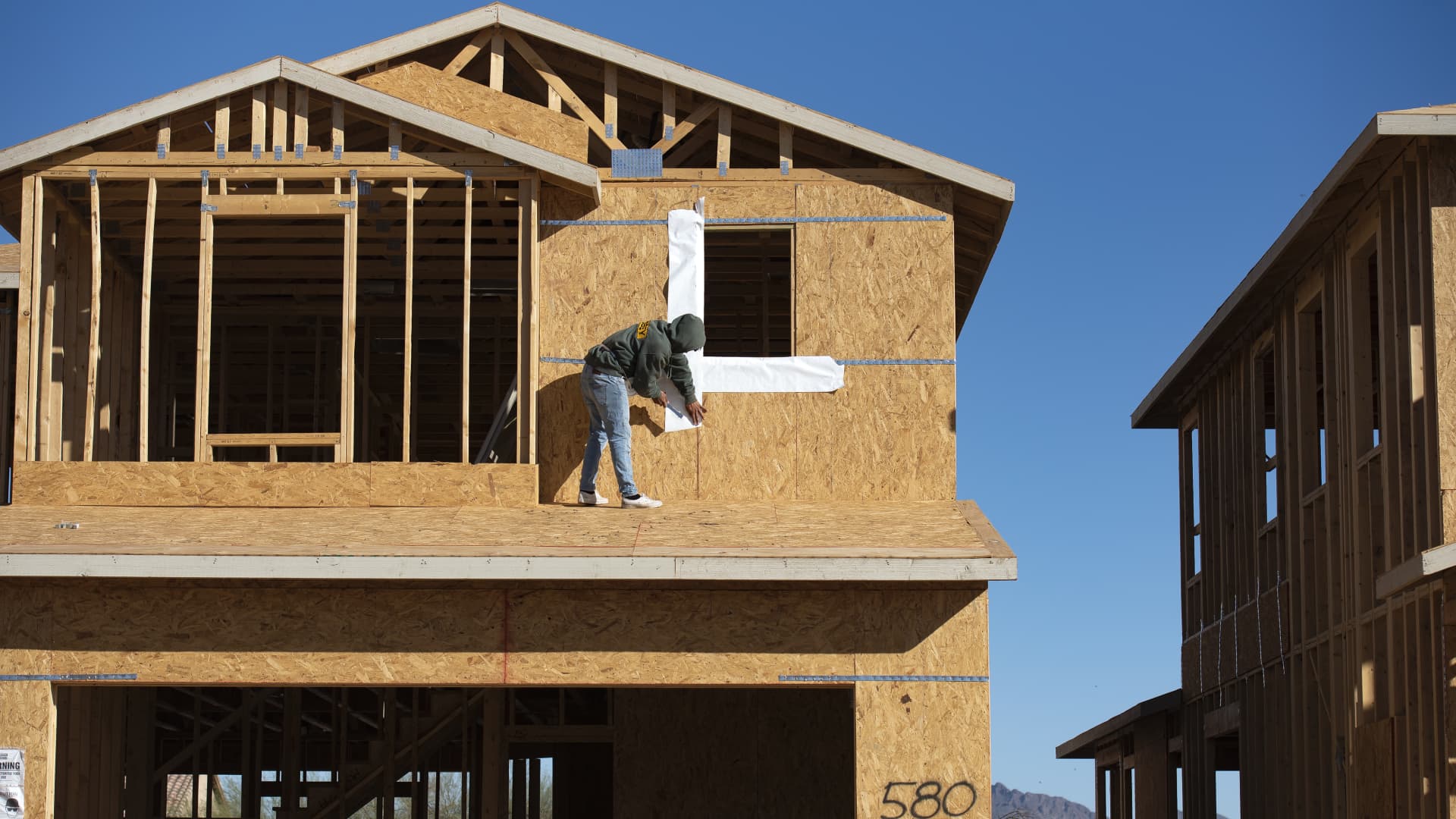Builder confidence in the market for single-family homes dropped to the lowest level since January, as builders contend with a market dominated by high mortgage rates and costs for financing.
The monthly National Association of Home Builders/Wells Fargo Housing Market Index dropped four points to 40 in October, and September’s read was revised down one point. Anything below 50 is considered negative. This marks the third straight monthly decline in builder confidence.
Builders point squarely to mortgage rates, which are now at a 23-year high. The average rate on the popular 30-year fixed mortgage has remained over 7% for two months. Affordability has fallen to near record lows.
“Builders have reported lower levels of buyer traffic, as some buyers, particularly younger ones, are priced out of the market because of higher interest rates,” said Alicia Huey, NAHB’s chairman and a homebuilder and developer from Birmingham, Alabama. “Higher rates are also increasing the cost and availability of builder development and construction loans, which harms supply and contributes to lower housing affordability.”
Of the index’s three components, current sales conditions fell four points to 46, sales expectations in the next six months dropped five points to 44, and buyer traffic dropped four points to 26.
In order to get buyers in the door, builders are using more incentives again. This includes buying down mortgage interest rates. About 62% of builders reported offering sales incentives of all forms in October, up from 59% in September and tied with the previous high for this cycle set in December 2022.
In addition, 32% of builders said they cut home prices. That is unchanged from the previous month but still the highest rate since December (35%). The average price discount is steady at 6%.
“The housing affordability crisis can only be solved by adding additional attainable, affordable supply,” said Robert Dietz, NAHB’s chief economist. “Boosting housing production would help reduce the shelter inflation component that was responsible for more than half of the overall Consumer Price Index increase in September and aid the Fed’s mission to bring inflation back down to 2%. However, uncertainty regarding monetary policy is contributing to affordability challenges in the market.”
Regionally, on a three-month moving average, builder sentiment in the Northeast fell four points to 50 and in the Midwest dropped three points to 39. In the South it fell five points to 49, and in the West it fell six points to 41.
